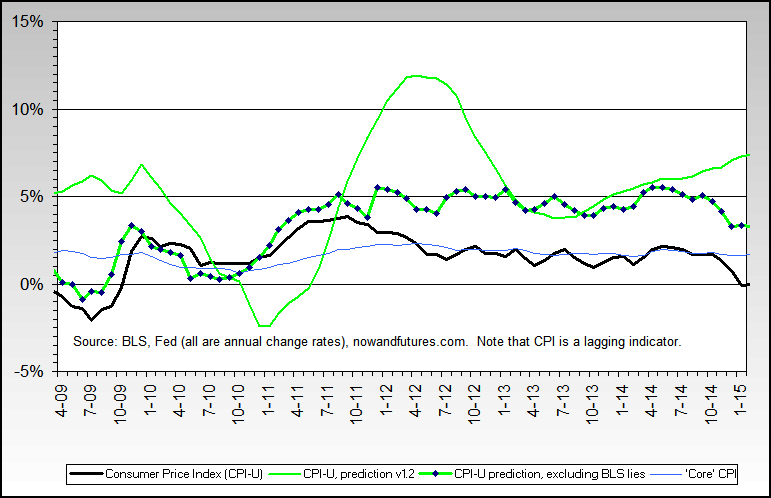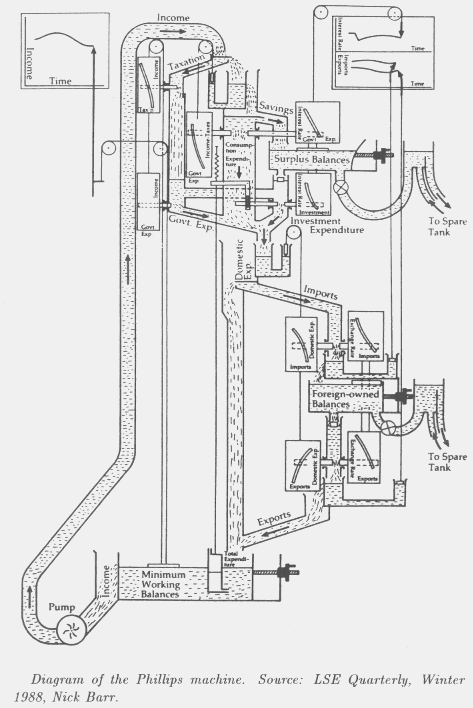This article starts out in mathematics and physics, and then passes through many other sciences, but winds up saying that it may not be possible to reliably model inflation more than a month or two in advance.
To find out, Bouchaud and his colleagues looked at how well US inflation rates could be explained by a wide range of economic indicators, such as industrial production, retail sales, consumer and producer confidence, interest rates and oil prices.
Using figures from 1983 to 2005, they first calculated all the possible correlations among the data. They found what seem to be significant results - apparent patterns showing how changes in economic indicators at one moment lead to changes in inflation the next. To the unwary observer, this makes it look as if inflation can be predicted with confidence.
...
In recent years, some economists have begun to express doubts over predictions made from huge volumes of data, but they are in the minority. Most embrace the idea that more measurements mean better predictive abilities. That might be an illusion, and random matrix theory could be the tool to separate what is real and what is not.
It is fascinating how in the era of huge data sets, biology becoming a computational science, etc., patterns are beginning to emerge across the data sets. I think this is potentially really useful because it suggests that patterns in data sets in the experimental sciences can be used as guides about the reliability of models in sciences in which it is difficult to do experiments.
http://www.newscientist.com/article/...html?full=true
To find out, Bouchaud and his colleagues looked at how well US inflation rates could be explained by a wide range of economic indicators, such as industrial production, retail sales, consumer and producer confidence, interest rates and oil prices.
Using figures from 1983 to 2005, they first calculated all the possible correlations among the data. They found what seem to be significant results - apparent patterns showing how changes in economic indicators at one moment lead to changes in inflation the next. To the unwary observer, this makes it look as if inflation can be predicted with confidence.
...
In recent years, some economists have begun to express doubts over predictions made from huge volumes of data, but they are in the minority. Most embrace the idea that more measurements mean better predictive abilities. That might be an illusion, and random matrix theory could be the tool to separate what is real and what is not.
It is fascinating how in the era of huge data sets, biology becoming a computational science, etc., patterns are beginning to emerge across the data sets. I think this is potentially really useful because it suggests that patterns in data sets in the experimental sciences can be used as guides about the reliability of models in sciences in which it is difficult to do experiments.
http://www.newscientist.com/article/...html?full=true



Comment